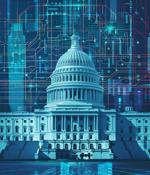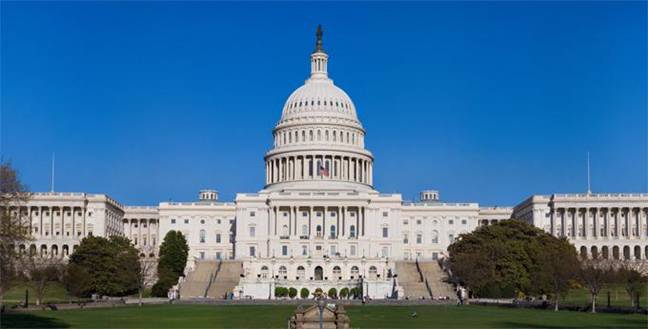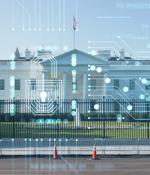Security News

Two House committee chairs have sent a public letter to the White House asking it to look into a deal between AI R&D outfit G42 and Microsoft. The missive [PDF] to National Security Adviser Jake Sullivan is authored by Reps Michael McCaul and John Moolenaar, respectively the chairs of the House Foreign Affairs Committee and the House Committee on Strategic Competition with the Chinese Communist Party.

Feature Microsoft president Brad Smith struck a conciliatory tone regarding his IT giant's repeated computer security failings during a congressional hearing on Thursday - while also claiming the Windows maker is above the rule of law, at least in China. Specific to Microsoft and America: The US government uses everything from the super-corp's cloud infrastructure to its operating system and productivity tools, and then also adds on Redmond's security products, which Trellix and other infosec vendors say discourages competition in the marketplace.

The number of cybersecurity incidents reported by US federal agencies rose 9.9 percent year-on-year in 2023 to a total of 32,211, per a new White House report, which also spilled the details on the most serious incidents suffered across the government. Brute force attacks on networks and services were the only other vector to register more than 1,000 cases - but took the price for the biggest YoY percentage increase in incidents, up from just 197 the year before.

Your profile can be used to present content that appears more relevant based on your possible interests, such as by adapting the order in which content is shown to you, so that it is even easier for you to find content that matches your interests. Content presented to you on this service can be based on your content personalisation profiles, which can reflect your activity on this or other services, possible interests and personal aspects.

Your profile can be used to present content that appears more relevant based on your possible interests, such as by adapting the order in which content is shown to you, so that it is even easier for you to find content that matches your interests. Content presented to you on this service can be based on your content personalisation profiles, which can reflect your activity on this or other services, possible interests and personal aspects.

Your profile can be used to present content that appears more relevant based on your possible interests, such as by adapting the order in which content is shown to you, so that it is even easier for you to find content that matches your interests. Content presented to you on this service can be based on your content personalisation profiles, which can reflect your activity on this or other services, possible interests and personal aspects.

"Drinking water and wastewater systems are a lifeline for communities, but many systems have not adopted important cybersecurity practices to thwart potential cyberattacks," said EPA Administrator Michael S. Regan. The National Security Council and the Environmental Protection Agency have invited governors to a virtual meeting on March 21 to strengthen collaboration between government entities and water systems and establish a Water Sector Cybersecurity Task Force.

The Biden administration and US lawmakers are turning up the pressure on UnitedHealth group to ease medical providers' pain after the ransomware attack on Change Healthcare, by expediting payments to hospitals, physicians and pharmacists - among other tactics. In a letter addressed to "Health care leaders" on Sunday, the heads of both the US Department of Health and Human Services and the US Department of Labor called on UnitedHealth Group to "Take responsibility to ensure no provider is compromised by their cash flow challenges" following the cyber attack, and expedite funds to all impacted providers.

A new White House report focuses on securing computing at the root of cyber attacks - in this case, reducing the attack surface with memory-safe programming languages like Python, Java and C# and promoting the creation of standardized measurements for software security. Memory safety vulnerabilities a concern in programming languages.

The Biden Administration has asked a court, rather than Congress, to renew controversial warrantless surveillance powers used by American intelligence and due to expire within weeks. US Senator Ron Wyden railed at the US Department of Justice's decision to seek a year-long extension of Section 702 of the Foreign Intelligence Surveillance Act, which is set to end in mid-April unless Congress reauthorizes it.